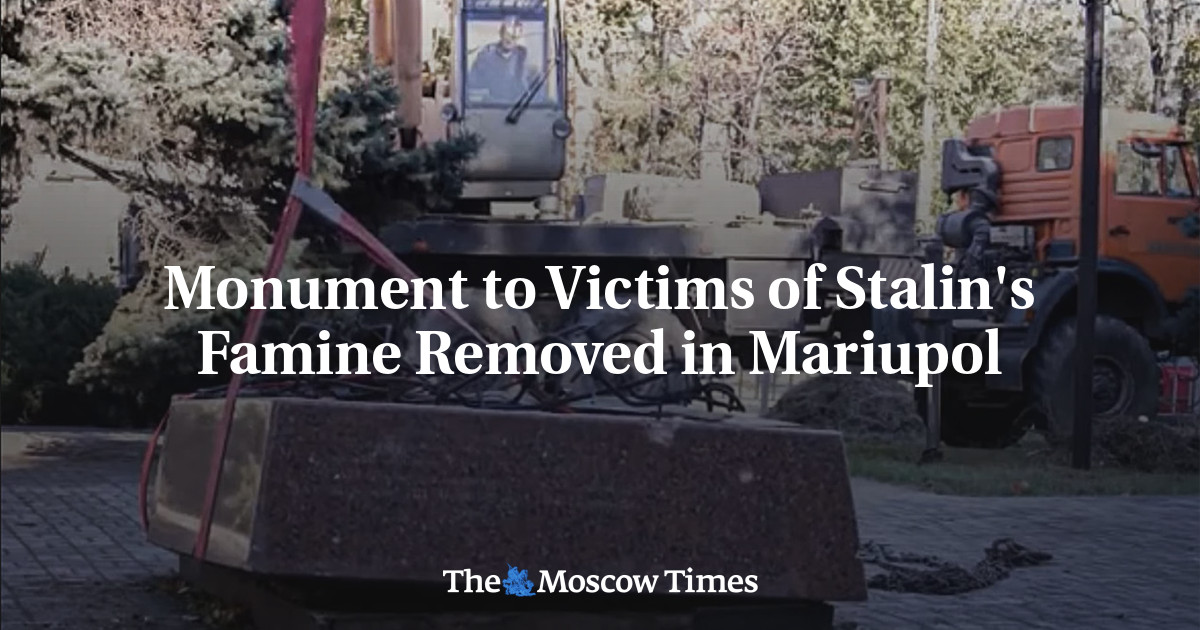
The Moscow-installed authorities of the port city of Mariupol, which fell to Russian forces after a devastating siege earlier in the year, took down a monument to Ukrainian victims of Stalin’s famine on Wednesday.
Kyiv has been calling the 1930s man-made hunger under Josef Stalin a “genocide,” while Moscow has been downplaying it as an episode of famine all over the Soviet Union.
The state-run RIA Novosti news agency published a video of a truck uprooting the monument in Mariupol.
“We are not taking out a memorial, we are getting rid of a symbol of the political disinformation of the population, particularly of our youth,” local youth organization spokeswoman Evgenya Krotova told RIA Novosti.
Local university professor Olga Shmatshkova said it was best not to “remind people over and over about the scariest (times).”
“Let’s make our motherland cleaner and more beautiful, we will still keep the memories of our problems in our souls,” she told RIA Novosti.
Pro-Russian separatist authorities in the Donetsk region said on Telegram that the structure had been removed.
“The stone will be recycled into construction material,” the administration said on Telegram.
The monument was made out of two blocs of granite topped by stalks of wheat and barbed wire.
It was dedicated to victims of Soviet-era political repression, executions and mass deportations that Moscow minimizes.
“Holodomor” — Ukrainian for “death by starvation” — is the 1932-1933 famine regarded by Kyiv as a deliberate act of genocide by Stalin.
It left thousands dead, according to estimates of historians.
Moscow rejects Kyiv’s narrative, placing the events in the broader context of famines that devastated regions of Central Asia and Russia.
The city of Mariupol was captured by Russian troops in May after several weeks of shelling that left thousands of dead and the city destroyed.